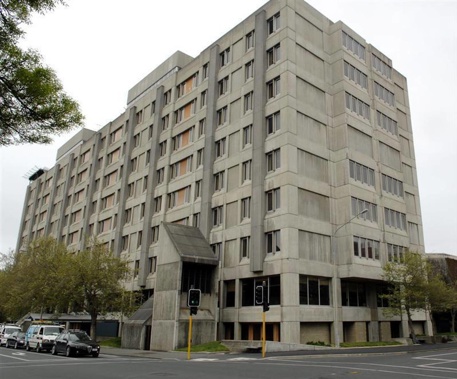
Staff and resource shortages are continuing to plague Te Whatu Ora as the health provider apologised for cancelling eight surgeries yesterday due to a “lack of beds”.
Thirty-six surgeries were planned to go ahead at Dunedin Hospital which was at code red until 2pm.
Interim lead Tony Gutschlag said the eight surgeries consisted of an ear surgery, a nose and throat surgery, four general procedures, two orthopaedic surgeries and a gynaecological surgery.
“While any deferment of planned care is deeply regrettable, any decision to do this is made with patient safety considerations at the forefront of all decision making,” she said.
/cloudfront-ap-southeast-2.images.arcpublishing.com/nzme/KQUPCBMDD4W4CMEEUR2YLIIVWA.jpg)
Thirty-six surgeries were planned to go ahead at Dunedin Hospital. Photo / George Heard
“We know this can be distressing and frustrating and we sympathise with these patients.”
A deferral will occur when an urgent treatment is prioritised for the most acute of patients in the hospital.
Dunedin Hospital’s current practice means that decisions around the prioritisation of procedures are made on a day-to-day basis, to care for the most urgent cases.
Gutschlag said this can result in planned surgeries being pushed aside due to “acute surgical demand” or required resources being unavailable due to being needed elsewhere in the hospital.
“This is not an isolated issue in the Southern Region, as many hospitals throughout the country are experiencing similar pressures.”
Talking to the Otago Daily Times, one man from Dunedin said he was being seen by a nurse yesterday when a hospital manager told him his elective surgery had been cancelled.
He did not blame the hospital staff, but the delay was frustrating because his daughter had flown to Dunedin from out of town to help him after the surgery.
/cloudfront-ap-southeast-2.images.arcpublishing.com/nzme/TO3Y3V7HZOYHYGIVK2Y5NU3RGI.jpg)
Interim lead, Tony Gutschlag said the decision to defer surgeries is made with patient safety considerations at the forefront. Photo / NZME
Apologetic staff could not tell him when his surgery would be rescheduled.
“I’m in limbo at the moment.”
Under the Code of Health and Disability Services Consumers’ Rights, patients that had their surgeries bumped have the right to make a complaint through the Health and Disability Commissioner.
Hospitals across the country have a number of ways to monitor and respond to pressures of patient requirements, including an internal escalation colour-coded system.
The colours will change depending on the level of the pressure, it helps by allowing resources to be prioritised and other responses, both internal and with local and regional partners.
It shows the situation at a point in time and can change through the day.
Dunedin Hospital went to code red on Wednesday, before shifting to orange at 2pm and back down to green as of 9.30am this morning.
“We are putting initiatives in place to increase our surgical capacity,” said Gutschlag.
/cloudfront-ap-southeast-2.images.arcpublishing.com/nzme/2VY34V7ZLFZRM6TEV77ZBKKNCE.jpg)
Hospitals across the country will use an internal escalation colour-coded system to indicate pressure. Photo / RNZ
“The backlog recovery for planned care is a multi-year programme of work across the country.”
The hospital is implementing 16n of the 101 recommendations from the Reset and Restore Plan from the Planned Care Taskforce.
Such improvements include working to establish a single radiology network, which Gutschlag said will “streamline the clinical scoring system to provide a consistent national approach”.
It will also mean the system is consistent with reporting process to measure planned care wait times.
The hospital will also set up a working group to focus on nationally-consistent metrics to improve its theatre capacity, as well as a regional approach to pooling resources to outsource patients where possible and move teams between sites to use available theatre capacity.
“[This will mean] engaging with the private sector and with the New Zealand Orthopaedic Society to explore opportunities with their networks, developing nationally agreed surgical pathways to care and review performance monitoring frameworks,” said Gutschlag.
“Planning and implementation has been initiated on 47 more of the recommendations.”
Take your Radio, Podcasts and Music with you









